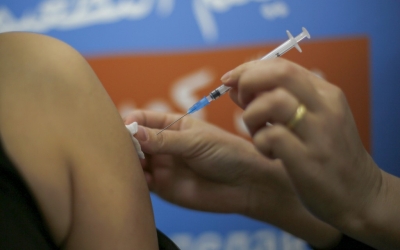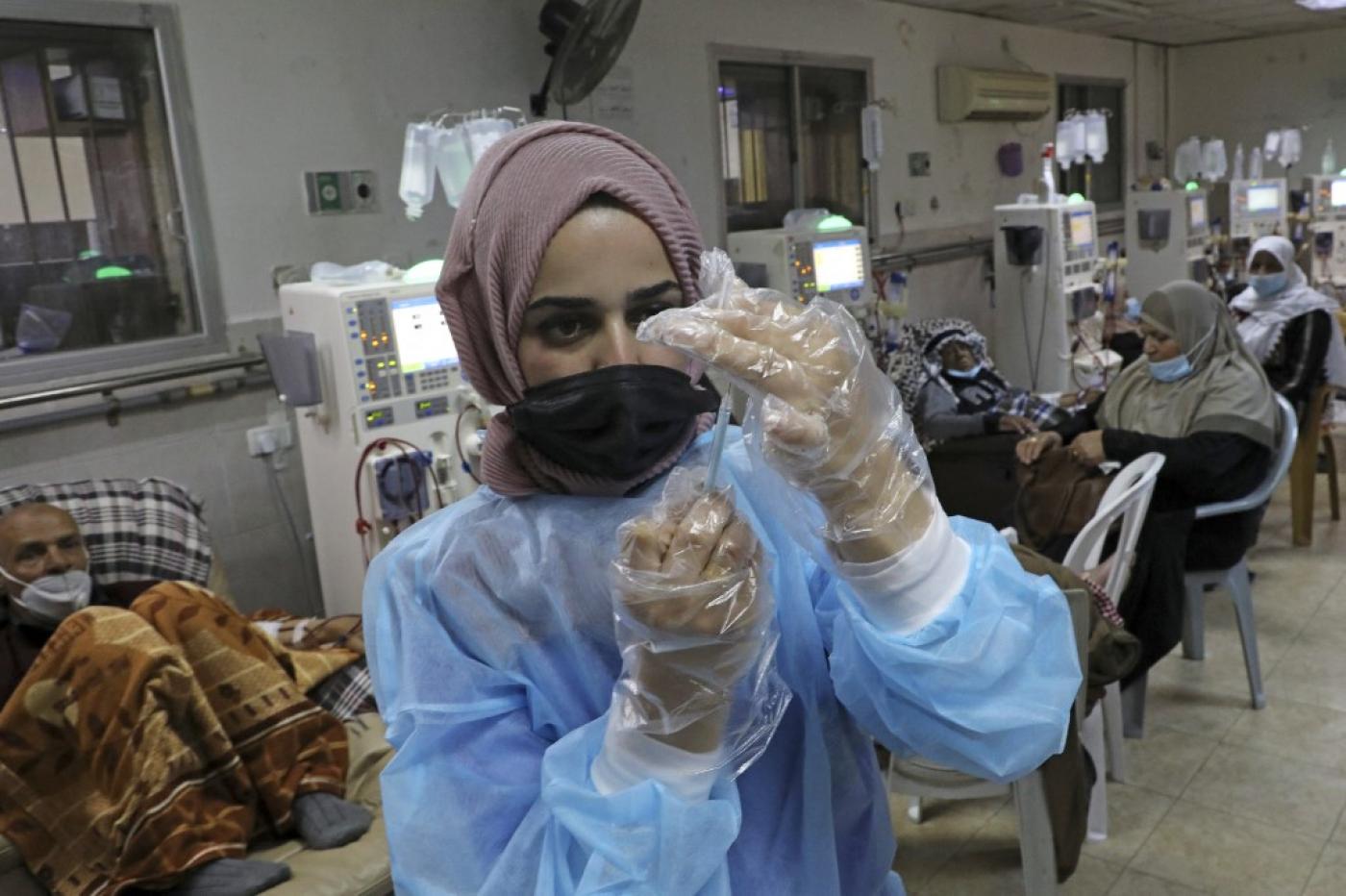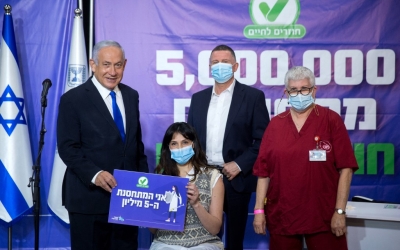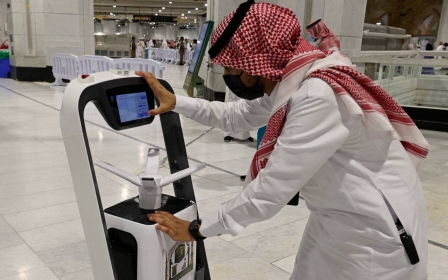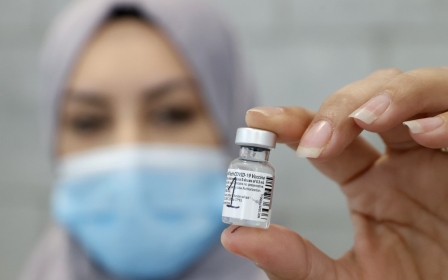Omicron: Covid-19 vaccine inequality and the politics of empire
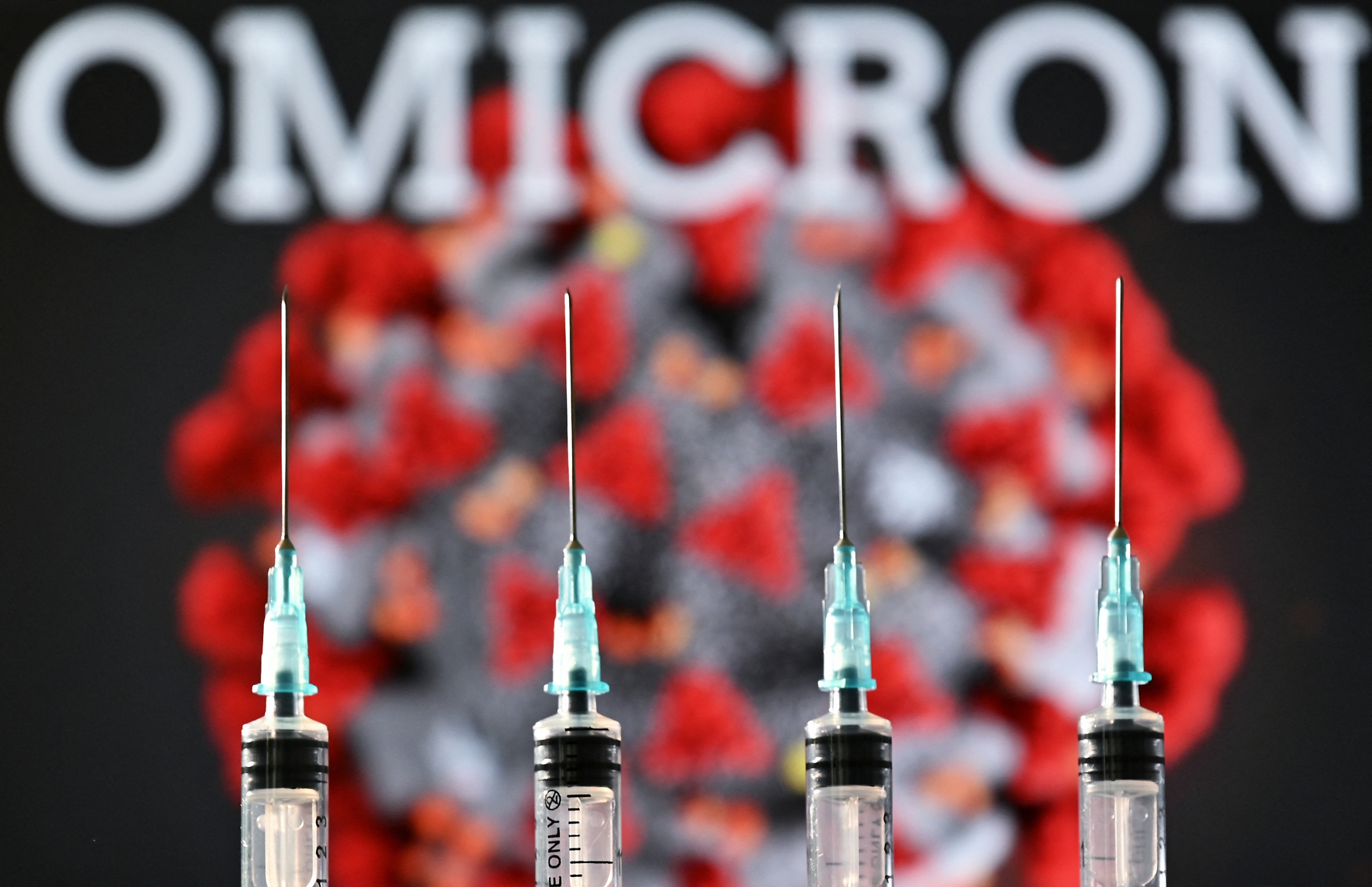
Covid 19’s Omicron variant brought the world, once again, face to face with the biopolitical realities of the global pandemic.
Travel restrictions are back in vogue after they had been generally eased or lifted. Experts and non-experts alike point out that the asymmetry of global vaccination has allowed the virus to mutate in countries where vaccines are not readily available, from whence it is now spreading to the rest of the world.
The new variant reminds us that the extension of vaccine privilege outside the West is not an act of Western charity but rather a necessary measure by the West to protect itself
It comes as no surprise that the new wave of travel restrictions disproportionately restrict the movement from African countries (not only South Africa where the variant was identified, though its origin is unknown).
This move is a reflection of both the global economy that necessitates the movement of people to the West, while giving western states the power to restrict this movement; and the global vaccine inequality that creates immunisation deficiencies outside the West.
Travel restrictions and calls to expand vaccine distribution sum up the two faces of the biopolitics of empire: the face that bans and restricts - the repressive side if we are to use the language of political theory - and the face that extends the "productive" side of power (such as vaccine campaigns), or the part that "fosters life", to use the terms proposed by Michel Foucault.
New MEE newsletter: Jerusalem Dispatch
Sign up to get the latest insights and analysis on Israel-Palestine, alongside Turkey Unpacked and other MEE newsletters
These recent developments are a reminder of how this Janus-faced nature of power is seen most intensely through relations of empire. Imperial privilege runs through the capillaries of biopolitical regimes, even (especially) ones that aim to "foster life", such as the current global vaccination campaign.
Vaccine disparity
The Palestinian context provides a stark example, with the successful Israeli immunisation campaign the other face of the policies of vaccine apartheid that leave the Gaza Strip (which Israel controls through its protracted siege) as a desolate void of immunisation.
This immunisation disparity is not limited to cases such as Israel or to the phenomenon of vaccine nationalism. The political economy of global vaccine distribution has created similar spaces of immunity deprivation, even as vaccines are rolled out, a situation described by the director-general of the World Health Organisation (WHO), Tedros Adhanom Ghebreyesus, as vaccine apartheid.
According to one group of pediatric public health professionals: “The state of being apart from vaccine programmes for low- and middle-income countries and not having actual meaningful solutions strongly resemble the situation in South Africa during the 20th century.”
According to WHO: “Only 15 percent of promised donations of vaccines - from rich countries that have access to large quantities of them - have been delivered.” Countries affected by this disparity include ones that contributed to the vaccine trials and “provid[ed] test subjects”.
In other words, poorer countries have provided raw human material for testing vaccines, vaccines that will then be used to help protect high-income countries and further the technological claims of the "advanced West". This contribution by the developing world also extends to production, as is the case is with India, a leader in generic vaccine production, with only 8.3 percent of the population fully vaccinated according to recent estimates.
Meanwhile, vaccines were sold at disparate prices, with richer countries paying less and “some African nations [paying] more than twice per dose than their European counterparts”, even though “some vaccines produced in Africa are being exported to Europe”. This was done under the pretext that European countries paid for the development of the vaccine - rendering ineligible the developing world's contribution to vaccine trials and production.
Politics of empire
Even in cases when biopolitics does “foster life”, as in the cases where they create infrastructures for efficient vaccination programmes and devise policies that aim to keep people healthy, the politics of empire are mapped out - and inequalities are created.
An elaborate apparatus of surveillance emerged with the rollout of vaccines: vaccine passports, Covid certificates, special travel and work permits, and requirements for recent PCR or lateral flow tests are rapidly becoming part of everyday life in many parts of the world.
While such measures (or, at least, some of them) are necessary during a global pandemic, it is important to note how they disproportionately target migrant labour and police the movement of people from the periphery of the imperial system to the centres of empire.
Evidently, it is the livelihood of those from the periphery depends on their centripetal movement to the imperial centres; whiter and richer countries are more likely to establish and enforce control mechanisms that securitise (and sometimes monetise) the movement of poorer and darker populations.
Increased risk
Even in cases where certain vaccines present (an admittedly minimal) risk- which according to experts is outweighed by the benefits, the distribution of risk across the imperial divide remains uneven. In the imperial metropole, when the vaccines that were associated with the low risk of thrombosis with thrombocytopenia syndrome (TTS) are given, they are administred with a kind of caution that was absent at the periphery.
Poorer countries have provided human material for testing vaccines, vaccines that will then be used to help protect high-income countries and further the technological claims of the 'advanced West'
In addition to the monitoring of symptoms after the administration of such vaccines certain segments of the population are advised to instead seek other vaccines that have not been associated with such risk (and that, for various logistical reasons, are not available in large quantities outside the West).
This was clearly not the case for the rest of the world. The risk created at the periphery of empire acquires more intensity under the emergent global apparatus of control. For practical (and understandable) reasons, western metropolitan centres and other imperial hubs (including oil-rich Arab countries) demand that migrant workers, students and pilgrims receive one of the vaccines the West certifies (thus excluding the Chinese and Russian vaccines) before departing.
As the Pfizer and Moderna vaccines (which are largely consumed in the US, Europe and other rich countries) are not present in poorer countries in the same large stocks, this translates into pressure to receive one of the two adenovirus vaccines in order to have freedom of movement in an imperial world.
The new variant reminds us that the extension of vaccine privilege outside the West is not an act of western charity but rather a necessary measure by the West to protect itself. It highlights the imperial regime of asymmetric extension of imperial privileges and creating pockets of dispossession is not sustainable: that these pockets of desolation themselves become the hotspots for the virus to mutate and spread again.
The virus does not simply spread according to the script of Michel Foucault; rather, it spreads according to the script of various postcolonial scholars who theorised how the regime of fostering life in the imperial metropole is always haunted by the desolation it creates on the other side of the imperial divide.
Disclaimer: This discussion of the politics of vaccination does not in any way pass itself as a discussion of the science behind the vaccine or of its medical efficacy. The critique of the biopolitics of empire and how it manifests in public health campaigns is in no way an argument against vaccination. The author of this article has already received his first dose of vaccine and is planning to take the second dose, most likely before this article is published.
The views expressed in this article belong to the author and do not necessarily reflect the editorial policy of Middle East Eye.
This article is available in French on Middle East Eye French edition.
Middle East Eye delivers independent and unrivalled coverage and analysis of the Middle East, North Africa and beyond. To learn more about republishing this content and the associated fees, please fill out this form. More about MEE can be found here.



